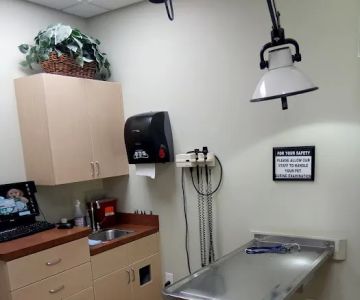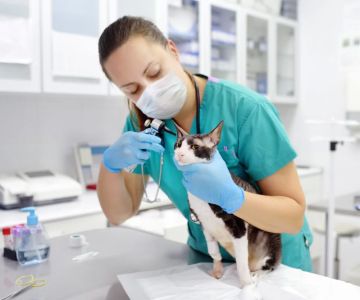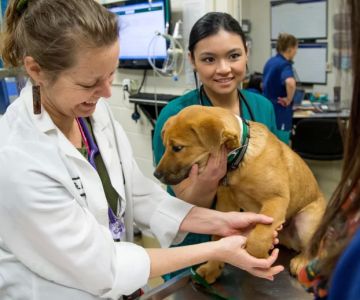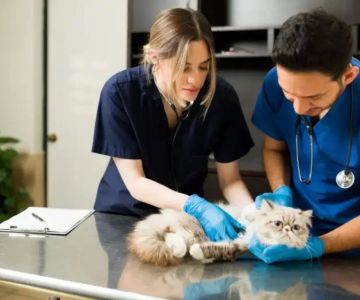Choosing the Best College to Become a Veterinarian: Expert Insights and Real Stories
- 1-Why-Choosing-The-Right-College-Matters
- 2-Top-Colleges-For-Veterinary-Medicine-In-The-USA
- 3-Admissions-Tips-For-Veterinary-Programs
- 4-The-Veterinary-School-Experience
- 5-Real-Stories-From-Veterinary-Students
- 6-Making-The-Right-Choice-For-Your-Veterinary-Career
1. Why Choosing the Right College Matters
Deciding what college is best to become a veterinarian is one of the most important steps in pursuing a successful veterinary career. The college you choose shapes your education quality, clinical exposure, and future opportunities. Vet programs vary in curriculum focus, research opportunities, faculty expertise, and connections to the veterinary industry. Attending a well-regarded veterinary school can open doors to competitive internships, residencies, and job placements. Beyond academics, the school environment and support systems affect your personal growth and resilience through rigorous training.
1.1 Impact on Career and Professional Development
Many veterinarians credit their school’s network and reputation for their early career breakthroughs. Selecting the right veterinary college can position you well for specialization and advancement.
2. Top Colleges for Veterinary Medicine in the USA
The United States boasts several top veterinary colleges known for excellence in teaching, research, and clinical practice. Schools like Cornell University, University of California Davis, Colorado State University, and North Carolina State University consistently rank among the best. These institutions offer comprehensive programs covering small and large animal care, advanced diagnostics, and emerging veterinary technologies. Choosing among these depends on factors like location, tuition costs, and areas of specialization.
2.1 What Makes a Vet School Stand Out?
High rankings often reflect faculty expertise, research output, clinical training facilities, and graduate success rates. Visiting campuses and talking with current students can help you assess which college aligns best with your goals.
3. Admissions Tips for Veterinary Programs
Admissions into veterinary schools are competitive, requiring strong academic records, relevant experience, and clear motivation. Prospective students should focus on excelling in science courses, gaining hands-on animal care experience through volunteering or internships, and preparing thoroughly for the GRE or other required tests. Crafting a compelling personal statement that highlights passion for veterinary medicine and resilience can differentiate your application. Early preparation and guidance from mentors enhance your chances of acceptance.
3.1 Importance of Experience and Recommendations
Practical exposure to veterinary settings and strong letters of recommendation are critical. These demonstrate your commitment and readiness for the demanding program ahead.
4. The Veterinary School Experience
Once admitted, veterinary students undergo intensive coursework and clinical rotations. The journey involves anatomy, pharmacology, pathology, surgery, and patient care. Many schools offer specialty tracks, research projects, and leadership opportunities. Support from peers and faculty is vital as the program is academically and emotionally challenging. Balancing study, practical skills, and personal well-being is key to thriving during veterinary school.
4.1 Preparing for Licensing and Practice
Curricula also focus on preparing students for licensing exams and ethical practice, equipping graduates to handle real-world veterinary challenges confidently.
5. Real Stories from Veterinary Students
Emma, a student at Colorado State University, shares that her school’s supportive community and hands-on clinics helped her develop confidence early. She credits her mentors for guiding her through tough exams and clinical trials. Similarly, Jake from Cornell recalls how research opportunities at his school inspired his interest in veterinary oncology, shaping his career focus. These stories show the diverse paths and rich experiences found in top veterinary colleges, inspiring prospective students to follow their passion.
5.1 Lessons Learned and Advice
Students emphasize the importance of resilience, time management, and actively seeking mentorship. Their journeys underscore that choosing the right college is a personal decision based on fit as much as reputation.
6. Making the Right Choice for Your Veterinary Career
Choosing what college is best to become a veterinarian ultimately depends on your academic strengths, career goals, and personal preferences. Research thoroughly, visit campuses if possible, and connect with alumni or current students. Remember that dedication and passion will drive your success regardless of where you study. For those ready to start this exciting journey, exploring program offerings and preparing your application early will set you on a strong path.
If you’re serious about pursuing veterinary medicine, investing in the right education is crucial. To complement your studies, consider using trusted resources and products that support your academic and personal growth. Our recommended partner offers specialized tools and guides tailored for veterinary students. Take the next step confidently by choosing a college that fits your vision and equips you to become the compassionate, skilled veterinarian you aspire to be.












